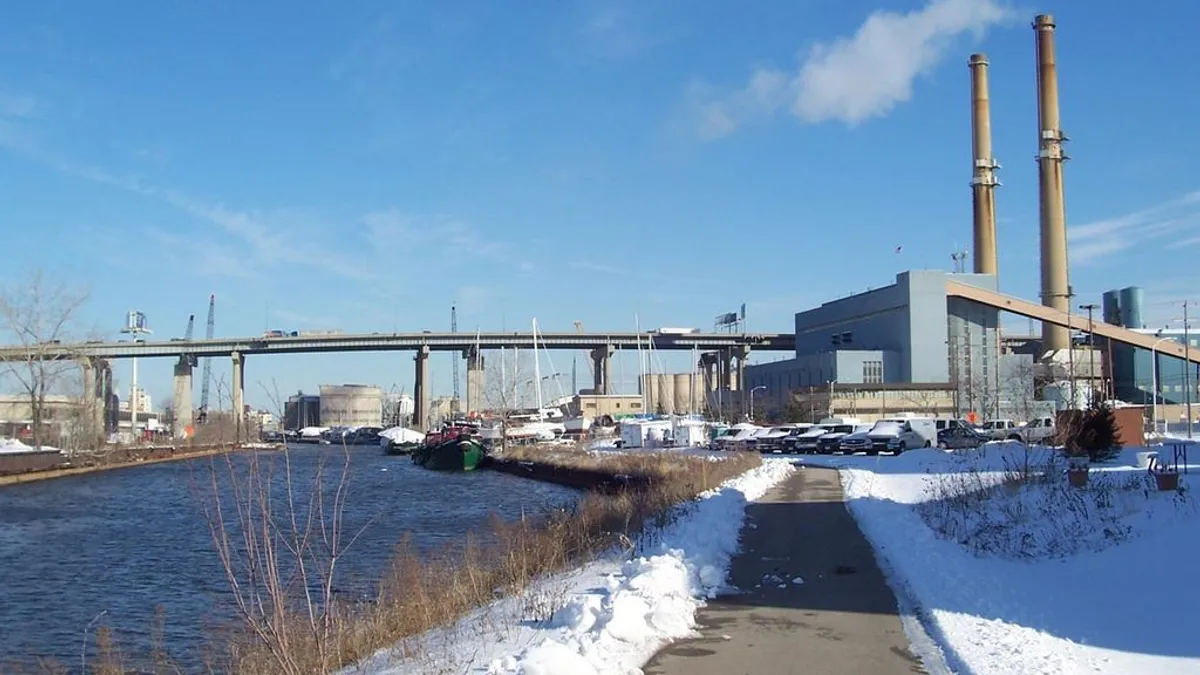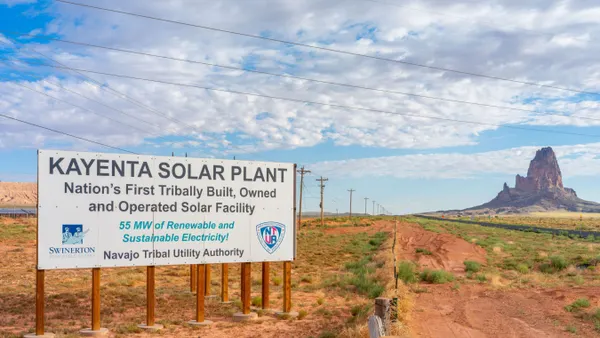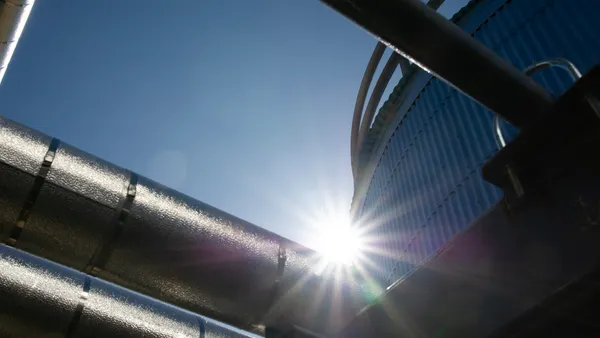Dive Brief:
- After exceeding the firm's original goal of cutting carbon emissions 40% by 2030 from 2005 levels, WEC Energy Group on Thursday established a new 2030 target of reducing emissions 70% and becoming carbon neutral by 2050.
- Early retirement of more than 1,800 megawatts of coal power aided in early emissions accomplishment, according to WEC. New natural gas units enabled the phase-out, but WEC has also increased its renewable generation by 60%.
- The company also plans to invest $900 million in a new renewable energy portfolio to help it achieve its emissions reduction goal.
Dive Insight:
Milwaukee-based WEC Energy Group has set its sights on a carbon-neutral future after reaching its emissions reduction goals early.
After crunching the numbers for their 2019 reports, company spokesperson Brendan Conway said WEC Energy Group realized that the accelerated retirement of several coal plants in 2018 caused the company's emissions to hit the 40% target last year.
WEC subsidiaries We Energies and Wisconsin Public Service have retired more than 1,800 MW of coal since 2018, including the 1,190 MW Pleasant Prairie Power Plant.
"We were proud that we were able to do that," Conway said, "and that gave us the confidence to make these new goals as well."
While WEC Energy Group replaced its retired coal plants with a mix of natural gas and renewables to meet the original goal, the company's 2019 Corporate Responsibility Report outlines a new plan that leans heavily on renewable energy. WEC Energy utilities currently source 26% of their power from carbon-free sources; the company hopes to push that number closer to 80% by 2030.
To get there, the group's utilities plan to spend $900 million over the next four years on new renewable generation, including 300 MW of utility-scale solar and 500 MW of wind generation.
Construction of the company's first utility-scale solar project just hit the halfway point last week, Conway said. That project should be online by the end of the year, with two additional solar projects to follow.
In addition to the confidence inspired by their own success, Conway said that the steep decline in solar prices, as well as advances in new technologies, have enabled more aggressive carbon goals.
"When everyone was setting these goals in the 2013-2014 timeframe, it was, I think, the beginning of that process," he said. "No one knew what the future would hold around technology and prices, particularly around solar and energy efficiency, in terms of being able to close some of these less efficient plants."
The company is banking on continued advances in technology to enable its future success, and is watching developments in batter storage, carbon capture and carbon offsets in particular. WEC Energy Group is also running pilot programs to explore the possibility of installing utility-scale solar in urban settings by installing panels on top of large buildings.
"We realize that reducing emissions is essential to building a bright, sustainable future," Conway said, "and we're going to continue down the path that we started on."














